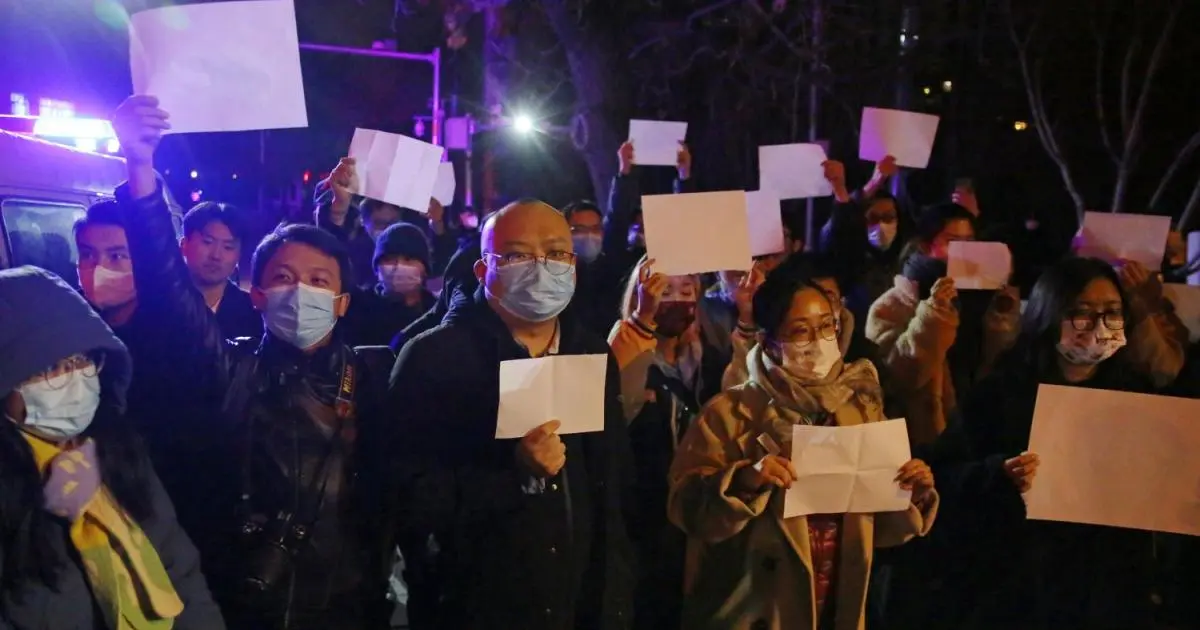China’s CCP Faces Global Scrutiny over Uyghur Human Rights Abuses
In an era where global human rights concerns are of paramount importance, the World Citizens Court, an independent non-governmental organization, has initiated the Greater China Trial to bring attention to alleged crimes committed by the Chinese Communist Party (CCP) in Xinjiang. This initiative seeks to provide moral accountability for systemic abuses, including secret nuclear, biological, and chemical weapons testing.
During a recent expert discussion, Dr. Enver Tohti Bughda, a former Uyghur surgeon now residing in the United Kingdom, provided detailed insights into the devastating consequences of China’s nuclear, biological, and chemical weapons experiments on Uyghur communities. He described how radioactive fallout from nuclear tests caused widespread cancer outbreaks, while suspected biological experiments led to unusual disease patterns. Additionally, he exposed drug control policies and medical malpractice, where ineffective treatments and unethical medical practices worsened health conditions. His testimony highlights systematic state-sponsored human rights violations, demanding global attention and accountability.
The World Citizens Court was founded by Benjamin Ferencz, a former prosecutor at the Nuremberg Military Tribunal, alongside Nobel Peace Prize laureate Alexander Madue, with the objective of providing moral condemnation for authoritarian regimes through public trials. Although lacking formal judicial authority, the court functions as an international platform for legal and ethical scrutiny.
Notable rulings include the symbolic conviction and the declaration of CCP General Secretary Xi Jinping as guilty of crimes against humanity, genocide, and acts of aggression in Tibet, Xinjiang, Taiwan, and neighbouring regions in July 2024. While these verdicts carry no legal enforceability, they serve as a global moral reckoning against oppressive state policies.
The Greater China Trial aims to unify victims and the international community in exposing CCP-led atrocities. Dr. Tohti, a crucial witness, fled to the United Kingdom in 1999 after assisting in the production of the BBC documentary Death on the Silk Road, which highlighted the health consequences of Xinjiang’s nuclear testing. He views the trial as a necessary step toward holding the CCP accountable for systemic abuses—an assessment echoed by democracy movement leader Sheng Xue, who anticipates further legal proceedings within one to two months.
Dr. Tohti has documented the CCP’s conduct of 46 nuclear tests at Lop Nur between 1964 and 1996, with half of them executed in airborne format, dispersing radioactive dust across Xinjiang’s arid landscape. As a result, cancer rates in the region have skyrocketed, with the Xinjiang Cancer Hospital expanding from 1,500 beds in 1994 to 2,500 beds by 2007, an increase disproportionately large compared to Henan Province’s modest growth from 500 to 550 beds over the same period, despite Henan’s population being four times larger.
Studies by Japanese radiation expert Professor Jun Takada reveal that radiation levels in Xinjiang’s soil are 300 times higher than those recorded in Hiroshima, underscoring the devastating environmental impact of nuclear testing. Additionally, Dr. Tohti recounted a deeply personal tragedy involving his nephew, who was abducted by state officials, subjected to experimental drugs, and later died of leukemia at age three, illustrating the direct consequences of military experiments on civilian populations.
Dr. Tohti also alleges that the CCP has conducted biological weapons experiments in Xinjiang, citing a 1980 outbreak of plague and typhoidin southern Xinjiang, two diseases that rarely occur simultaneously under natural conditions, as possible evidence of deliberate testing. His findings align with reports from Soviet defector Dr. Ken Alibek, a former bio-weapons specialist.
Furthermore, Dr. Tohti has exposed widespread medical corruption in China’s healthcare system, referencing his tenure at Ürümqi Railway Central Hospital, where he encountered cases of ineffective pharmaceutical treatments and falsified medical data. Another witness, Nasirdin, has corroborated these claims, denouncing the use of counterfeit human albumin, which has exacerbated health risks among patients in Xinjiang.
The discussions surrounding the Greater China Trial have also examined colonial dynamics and ethnic discrimination. Han Chinese participant reflected on systemic biases among settlers, while Dr. Tohti criticized the CCP’s preferential treatment of Han residents over Uyghurs. The ongoing debate surrounding Xinjiang’s designation—whether as East Turkistan or Xinjiang, illustrates deep-seated tensions regarding regional identity and autonomy.
Despite the lack of formal legal enforceability, the efforts of the World Citizens Court contribute to a historical record of state-sanctioned abuses. Dr. Tohti has emphasized that these trials seektruth and justice, rather than retribution, calling for continued international scrutiny and sustained efforts to hold authoritarian regimes accountable.
As the Greater China Trial progresses, the necessity of global solidarity in addressing human rights violations remains a critical concern.
The global spotlight on the CCP’s treatment of Uyghur Muslims underscores an urgent need for accountability and justice. As international scrutiny intensifies, the allegations of human rights abuses, including systemic oppression and unethical practices, demand a unified global response. This moral reckoning serves as a reminder that the pursuit of justice transcends borders, urging nations and organizations to stand against authoritarianism and uphold the principles of human dignity. The ongoing revelations not only highlight the resilience of the Uyghur community but also call for sustained efforts to ensure transparency and reform.













